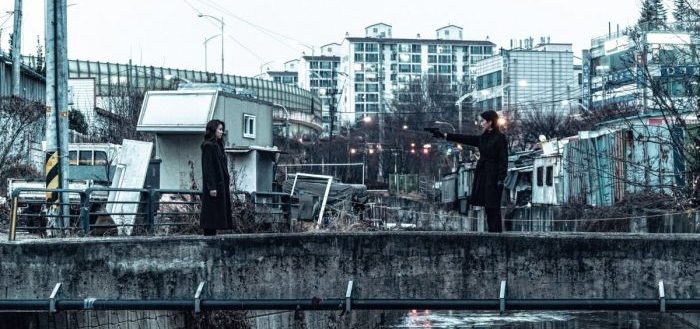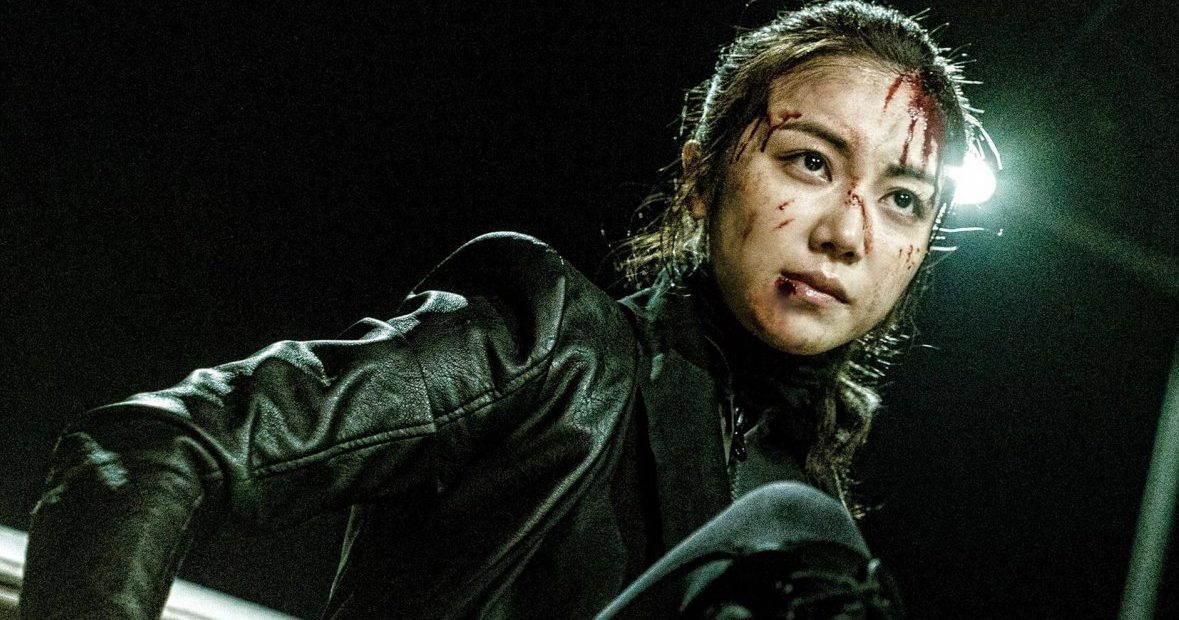Director: Jung Byung-gil
London Korean Film Festival teaser screening review
You’d be hard-pressed to find a more virtuosic fight scene in recent years than the brutal opening of Jung Byung-gil’s The Villainess. An exhilarating and darkly comical rampage that falls somewhere between the famous corridor melee in Oldboy and any given scene of The Raid but filmed with a style and technical chutzpah comparable to the taxi cab stabbing sequence in Kim Jee-woon’s I Saw the Devil, it is a rough and ravishing set piece that will undoubtedly have a few Hollywood producers throwing cheques in Jung’s direction.
Here’s hoping he declines all offers. It would be a shame to see the career of such a promising talent veer into the game of delivering watered-down, Americanised versions of this same outrageous spectacle, especially when, as the rest of The Villainess makes evident, he’s still got some artistic growing to do before he can follow through on his potential. Though enjoyable in its own right, The Villainess feels like the template for a great film. The broad strokes are all there, it’s just the details that are missing.
This introductory massacre was the skilled handiwork of trained assassin Sook-hee (Kim Ok-bin), whose vengeful killing spree ends with her arrest. The prisoner is rushed to an eerie facility run by the South Korean intelligence agency, who offer freedom for Sook-hee and her unborn baby in exchange for ten years of service as a sleeper agent. She agrees – though not before another delightful set piece in which she attempts escape – and is released back into society, posing as an ordinary civilian while ironically working as a theatre actress.

As messy complications arise from Sook-hee’s grim past, it becomes increasingly difficult to feel invested in the film’s convoluted plot, which is largely beside the point. In its excessive style and post-modern undercurrents, The Villainess is a beast of comparable genetic coding to Luc Besson’s Lucy, Brian De Palma’s Femme Fatale and Zack Snyder’s Sucker Punch: three vibrantly playful, world-hopping films that build a self-consciously artificial, genre-based reality around the subjective perspectives of their female leads while also deconstructing the unseen forces behind its genre thrills.
The facility where Sook-hee and other young women are trained in both fighting and theatre, while their government captors watch from CCTV, certainly brings to mind De Palma and Snyder’s part-critical, part-admiring assessments of the complex relation between our ass-kicking, fetish-fulfilling female screen icons, the predominantly male filmmakers pulling their strings and the audiences who lap it all up.
More generally, The Villainess is a thriller informed by the ambiguous nature of identity and free will in an age of pervasive administrative influence. After the practically lab-bred warrior begins her new life in the real world with her daughter, she soon commences a relationship with her neighbour, oblivious to the fact that she is simply playing into a love story engineered by her superiors. By the time the wedding day comes, for which both the bride and groom have surreptitiously hired actors as their wedding guests, it’s clear that Sook-hee is still a monitored rat in a maze. The maddening question emerges of just what parts of her existence – right down to her inner thoughts and her strongest emotions – are truly organic, and what parts were contrived by her government watchers.
So, for all the technical clout of its set pieces and the potency of its themes, why, when that initial thrill wears off, does The Villainess ultimately feel a bit hollow? Perhaps it’s a problem of commitment. The film’s aesthetics are dazzling but not particularly intricate. Its layered, post-modern themes are intriguing but not very fleshed out. For a film that sees love, horror, manipulation and tragedy mould its main character into a vengeful killer, there’s surprisingly little in the way of psychology. It’s a thin work but let’s not forget that it’s a fun one too, and for all its limitations, it’s hard not to get a kick (albeit a diminishing one) out of every one of its fast, flashy and viscerally impactful action scenes. In its best moments, The Villainess may well be bringing us the future of genre cinema – just a future that hasn’t fully arrived quite yet.
The London Korean Film Festival 2017 runs 26th October to 19th November. More info here.





